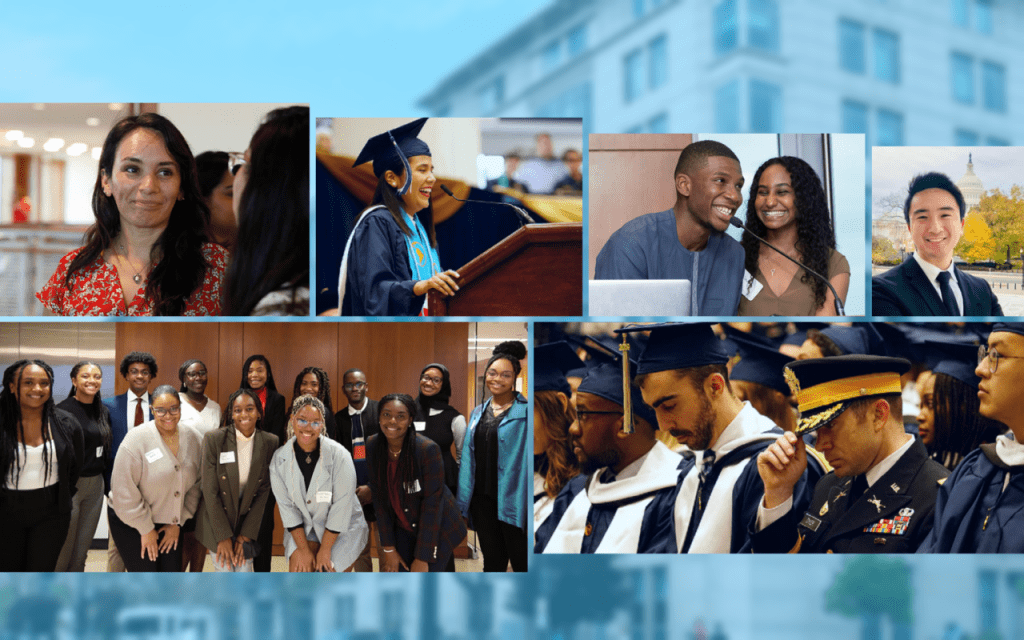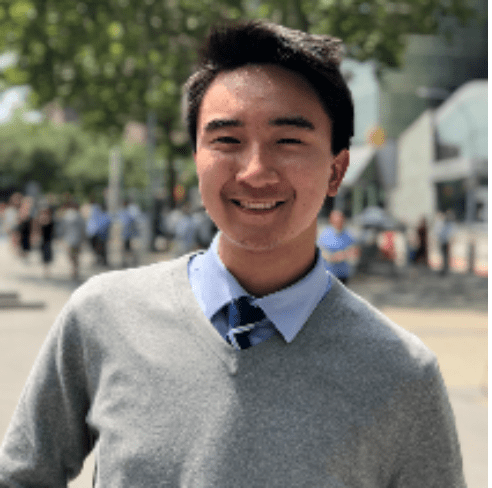
An innovative initiative at the Elliott School will soon provide significant new resources for students, advancing diversity, equity, and inclusion in international affairs education by increasing access for students with financial need.
The initiative, the Elliott Equity Fund, is in line with GW University’s commitment to excellence and affordability. The fund, which the school will grow through philanthropic contributions, will help foster an inclusive academic environment, further efforts to diversify the student body, and ensure that students can reach their full potential.
“Our emphasis on equity prioritizes providing opportunities and resources for historically underrepresented students in order to promote equal access and success,” said Jonathan Walker, senior assistant dean for student services, diversity, equity, and inclusion at the Elliott School. The fund will enhance support for tuition, as well as important extracurricular activities in international affairs, such as study abroad and internships, both transformative educational opportunities that often still remain out of reach for those who need to earn.
Walker, Elliott School Dean Alyssa Ayres, and the school’s Office of Diversity, Equity and, Inclusion, together with members of GW Elliott’s Council on Diversity, Equity, and Inclusion, developed the concept for nearly a year. They then shared plans for the initiative with colleagues across the university, honing its purpose and ensuring it aligns with the university’s mission and goals.
Increasing Access to Promote Equity
Scholarships and fellowships are more critical now than at any time in the university’s history – and the only way to keep GW Elliott accessible during this time of exceptional economic uncertainty. The pandemic’s disproportionate impact on lower-income families has widened inequality, putting the costs of higher education further out of reach.
GW Elliott is determined to reverse this trend, a critical mission in our times, as the United States becomes an increasingly diverse society. As the world becomes more multipolar geopolitically, students will graduate into a diplomatic arena that requires greater knowledge of more regional contexts, and the skills to operate in a wider and more diverse variety of environments. Increasing access to an international affairs education also can help ensure that we are best positioned to understand and resolve the most pressing challenges facing our interconnected world – and that GW Elliott nurtures a new generation of international affairs leaders who understand the complexity of this diverse world and the importance of equity, respect, justice, inclusion, and civil discourse to greater understanding.
How the Elliott Equity Fund Works
The Elliott Equity Fund (EEF) aims to help GW Elliott attract and maintain a diverse student body through tuition and non-tuition awards for students with financial need – and who will advance diversity, equity, and inclusion in the field of international affairs.
Accordingly, non-tuition awards will expand financial support currently offered to students for the many on-the-ground learning experiences that an Elliott education makes possible. These include study abroad and high-quality, unpaid internships. Often, students with limited financial resources are not able to pursue these game-changing opportunities.
Undergraduate and graduate students, including newly-admitted students, may apply for support from the Elliott Equity Fund. A committee of Elliott School and GW professionals will holistically review each student’s application for an award.
Once underway, the EEF will strengthen the Elliott School’s promise to build leaders for the world. As one undergraduate explained, “Supporting diversity, equity, and inclusion means providing everyone with the chance to grow.”

Gillian Villarroel, B.A. ’24
“Growing up, my life was surrounded by the realities of diversity and inclusion. Often, I felt like an outsider in school trying to find a community where I could feel a true sense of belonging. As a minority student, it seemed like a negative thing at first, but as I grew, I learned to love my culture. I was able to perceive things through the lens of my heritage that perhaps my peers weren’t able to.”

Gabriel Young, B.A. ’23
“International affairs and domestic affairs are inevitably intertwined….To understand how to improve one’s community, [individuals] must know their place in the world, and that’s why I’m in the field. Diversity and inclusion means having a variety of voices in the room and making sure that those voices are fairly heard.”

